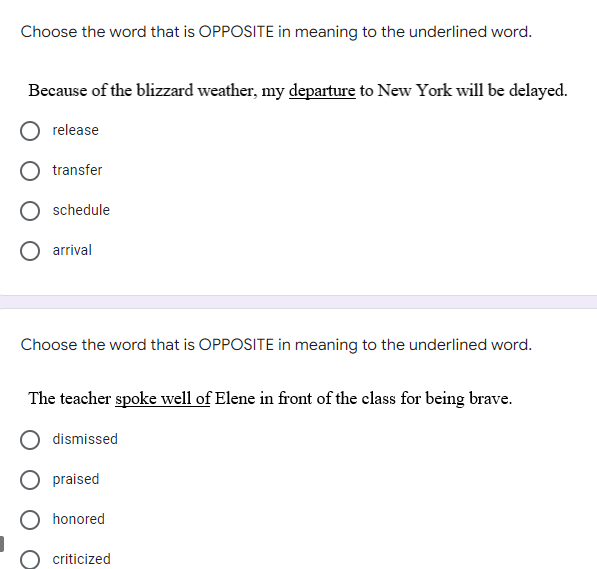
Hãy nhập câu hỏi của bạn vào đây, nếu là tài khoản VIP, bạn sẽ được ưu tiên trả lời.



 Bạn cho mình hỏi "trò chơi kéo co " được viết bằng tiếng anh như thế nào không ???
Bạn cho mình hỏi "trò chơi kéo co " được viết bằng tiếng anh như thế nào không ???![]()


Every year many people in the world learn English.Some of them are young children ,others are teenagers.Many are adults.Some learn at school ,others learn in evening classes.
A few learn English by themselves or just by hearing the language on television or among their friends .Most people must work hard to learn English .
Why do all these people want to learn English ?It is difficult to answer that question .Young children learn English at school because it is one of their subject .Many adults learn English because it is useful for their work .Teenagers often learn English for their higher studies ,because some of their books are in English at college or university .Other people learn English because they want to read newspaper or magazines in English.

1. She said that she would get herself a drink.
2. If she knew anyone there, she would live in London.
3. If I had a spare ticket, I could take you to the concert.
4. I was given a wonderful present by Alice.
5. Our exercises are corrected at home by the teacher.
6. Several new schools are being built in our town.
7. John said that he wanted to attend a famous university.

As this recent infographic illustrates, the most widely used language on the internet is English, which is used on more than half of all the pages on the web. Those pages cover every style of English – business, conversational, scientific reports, news, sports, debates, local dialects and more – which makes the internet an ideal resource for interactive learning.
While access to current English books or newspapers may not be easy, you can always use the internet to find content on almost any topic. Practise your English language learning by reading books or newspaper articles, listening to the radio or podcasts and by watching streaming videos of TV and film.
You can use the internet to shape your language studies. If you’re learning English to go on holiday, for example, you can look up detailed information about the place that you’ll be visiting. Or if you’re learning English for your career, you can find out more about the sector you work in, including common words and phrases, and industry-specific terminology.
One of the biggest advantages of using the internet to support your language learning is how much it can help you understand the culture of another country. This is especially true when it comes to watching video online. Watching the news, including sports coverage, or popular TV shows can help you see the world through the eyes of another country and give you an insight into how its culture differs from your own.
But perhaps the most exciting opportunity that the internet presents English language learners is the ability to communicate in real-time with native speakers. Using video calling, instant messaging and online forums means you can join in live conversations and debate – a superb way to practise your spoken and written English.
And, as anyone who has ever made an error when posting a comment on a blog will tell you, there are always lots of people willing to help you correct your grammar!

As this recent infographic illustrates, the most widely used language on the internet is English, which is used on more than half of all the pages on the web. Those pages cover every style of English – business, conversational, scientific reports, news, sports, debates, local dialects and more – which makes the internet an ideal resource for interactive learning.
While access to current English books or newspapers may not be easy, you can always use the internet to find content on almost any topic. Practise your English language learning by reading books or newspaper articles, listening to the radio or podcasts and by watching streaming videos of TV and film.
You can use the internet to shape your language studies. If you’re learning English to go on holiday, for example, you can look up detailed information about the place that you’ll be visiting. Or if you’re learning English for your career, you can find out more about the sector you work in, including common words and phrases, and industry-specific terminology.
One of the biggest advantages of using the internet to support your language learning is how much it can help you understand the culture of another country. This is especially true when it comes to watching video online. Watching the news, including sports coverage, or popular TV shows can help you see the world through the eyes of another country and give you an insight into how its culture differs from your own.
But perhaps the most exciting opportunity that the internet presents English language learners is the ability to communicate in real-time with native speakers. Using video calling, instant messaging and online forums means you can join in live conversations and debate – a superb way to practise your spoken and written English.
And, as anyone who has ever made an error when posting a comment on a blog will tell you, there are always lots of people willing to help you correct your grammar!






 Giúp mình nha !!!
Giúp mình nha !!! 



1 C
2 D
3 D
4 B
5 B
6 D
7 B
8 A
9 C
10 A
11 B
12 D
13 A
14 B
15 A
mình thấy 5A đúng hơn bởi vì có were ở vế sau đó bạn